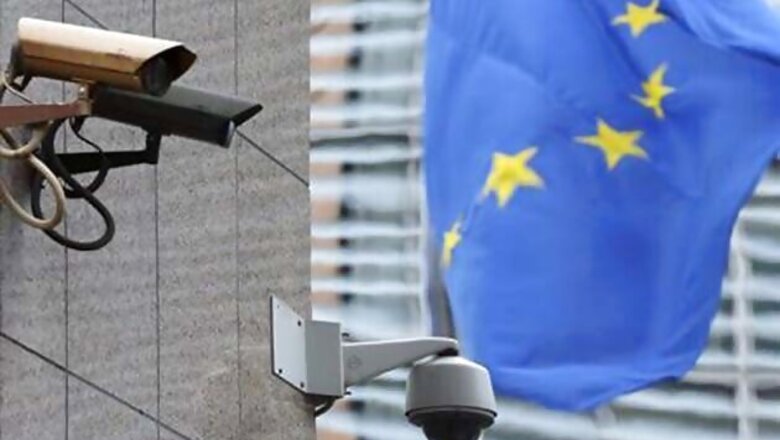
views
The European Union is threatening to suspend two agreements granting the United States access to European financial and travel data unless Washington shows it is respecting EU rules on data privacy, EU officials said on Friday.
The threat reflects European disquiet about allegations that the United States has engaged in widespread eavesdropping on European Internet users as well as spying on the EU.
Cecilia Malmstrom, the EU's home affairs commissioner, wrote to two senior U.S. officials on Thursday to voice European concerns over implementation of the two agreements, both struck in the wake of the September 11, 2001 attacks and regarded by Washington as important tools in the fight against terrorism.
"Should we fail to demonstrate the benefits of (the agreements) for our citizens and the fact that they have been implemented in full compliance with the law, their credibility will be seriously affected and in such a case I will be obliged to reconsider (whether) the conditions for their implementation are still met," Malmstrom said.
EU-U.S. relations are going through a "delicate moment", she wrote in the letter to U.S. Homeland Security Secretary Janet Napolitano and David Cohen, Treasury under-secretary for terrorism and financial intelligence.
"Mutual trust and confidence have been seriously eroded and I expect the U.S. to do all that it can to restore them," she said in the letter, seen by Reuters.
Malmstrom is sending a team of officials to Washington next week for previously scheduled reviews of both information-sharing agreements.
The Terrorist Finance Tracking Programme (TFTP) provides the U.S. Treasury with data stored in Europe on international financial transfers. The Passenger Name Record agreement covers data provided by passengers when booking tickets and checking in for flights. All such information is passed to the U.S. Department of Homeland Security.
U.S. intelligence sources say aggressive spying operations by some allies, notably France, rival those of the U.S. National Security Agency. China, Iran and Israel also engage in such activities, whereas Japan and Germany are more restrained in spying, according to former U.S. national security and law enforcement officials.
SAFEGUARDS
The United States and the EU need to show that the two data-sharing agreements "continue to bring benefits to our security and that the robust safeguards attached to them are respected to the full. We need complete transparency and a maximum of information on both programmes," Malmstrom wrote.
The European Parliament, some of whose members have long worried that the agreements granted the United States too much access to European data, called on Thursday for the scrapping of both accords unless Washington revealed the extent of its electronic spying operations in Europe.
Many of the eavesdropping reports were based on leaks by fugitive Edward Snowden, a former contractor for the NSA.
Current and former U.S. officials familiar with France's programs say it and other European countries conduct wide-ranging surveillance against both friendly countries and adversaries, and have done so for economic as well as political and strategic reasons.
U.S. security sources also say that intelligence operations in France and other nations work with fewer restraints than the NSA, which is governed by a framework of laws and internal and legislative oversight.
A 2009 cable posted by WikiLeaks from the American Embassy in Berlin to Washington highlighted concerns about French espionage among high-tech businesses. "France is the evil empire stealing technology and Germany knows this", the cable quoted a European high-tech executive saying.
A member of the French Parliament's intelligence oversight committee, Jean-Jacques Urvoas, said in a statement that data collection by France's foreign intelligence agency, DGSE, is more tightly targeted than the efforts of the NSA and its British partner, Government Communications Headquarters (GCHQ), which have emerged in documents released by Snowden.
"You could say, therefore, that next to the 'trawler fishing' the NSA seems to be doing, the DGSE carries out 'harpoon fishing'," Urvoas said.
France initially urged the EU to delay talks on an ambitious trade pact with the United States over the alleged spying.
European Commission President Jose Manuel Barroso said Europe would begin the trade talks on Monday as planned but would set up EU-U.S. working groups to examine the scope of U.S. intelligence-gathering.
Volker Kauder, head of German Chancellor Angela Merkel's conservatives in parliament, said the United States needed to make clear it would not spy on embassies in future for the talks to be successful, according to an advance copy of an article to appear in regional newspaper Rheinische Post on Saturday.
Separately, German Interior Minister Hans-Peter Friedrich said the country's intelligence services were not spying on the United States and he did not think German policymakers were under U.S. surveillance. "Anything else would be unacceptable," he told Bild newspaper.


















Comments
0 comment